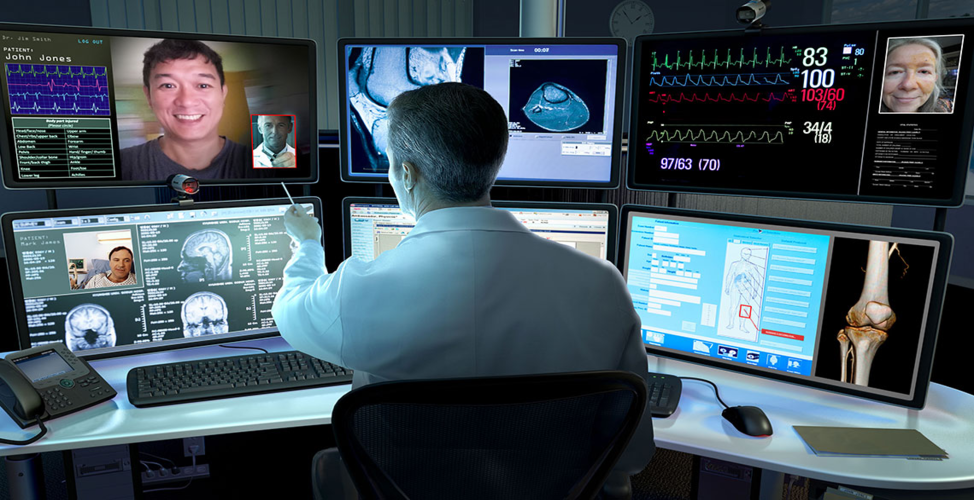Revolutionizing Telemedicine with AI: How to Prepare In Terms of Ethics and Regulations?
The healthcare industry is undergoing a rapid transition as artificial intelligence (AI) is increasingly being used worldwide. But can machines behave ethically, either with or without human oversight? It’s a question without an easy answer.

The rise of privacy challenges
The rising application of AI in clinical practice has enormous promise to improve healthcare such as expanding and improving its capabilities, giving endless possibilities for developing solutions for specific healthcare needs. As an “intelligent assistant” for physicians and clinicians, AI can contribute to the implementation of the continuum of healthcare and promote and facilitate greater access to integrated healthcare, where and when necessary.
It can’t be argued that AI-based telemedicine can open up novel opportunities for the delivery of clinical health and care and become a strong aid to public health systems worldwide. However, transitions offer opportunities also compounded with difficulties.
The utmost convenience of new technology also comes with the possibility of becoming a new source of inaccuracy and data breaches. Especially in the high-risk area of healthcare, mistakes can have severe consequences for the patient who is the victim of this error. This is seriously critical for business or healthcare providers to remember since patients come when they are most vulnerable.
Speaking about the integration of AI in healthcare, Dr.Avneesh – a MedTech consultant and educator expresses his concerns:
“We also need to ensure privacy protection which is quite important in healthcare. There’s a lot of news every day that there have been data breaches and there have been hacks of patient data and these can only lead to corruption if they might even lead to corruption of AI models and the AI models going rogue and then the consequences can be disastrous.”
Hear more about Dr. John’s thoughts on AI in the healthcare industry in our CommerceTalk podcast.
According to a European Institute of Innovation & Technology (EIT) survey, 59% of healthcare machine learning start-ups expected the AI technologies they were developing to need regulatory approval, but only 22% could suggest topics that should be addressed by guidelines of ethics and AI.
“Prevention is better than cure”
Research on “Artificial Intelligence and Healthcare Regulatory and Legal Concerns” proved that patients believe that their needs are unique and cannot be adequately addressed by algorithms. Then educating medical professionals on AI systems is highly important. An educated informed consent needs to be given by the patient and caregiver prior to the clinician using AI until AI is accepted as the ‘standard of care’. AI should be used to reduce not increase health inequality – geographically, economically, and socially.
According to Techopedia, to fully achieve the potential of AI in healthcare, these major ethical issues must be addressed:
- Safeguarding Patient Information: Healthcare institutions must navigate data storage, sharing, and potential misuse while maintaining robust data protection measures.
- Assigning Responsibility: Determining accountability for AI-generated errors or harms demands clear guidelines and protocols involving developers, healthcare providers, and patients.
- Ensuring Equality and Fairness: Addressing algorithmic bias is essential for equitable and fair AI-driven healthcare services, requiring continuous monitoring and evaluation.
- Empowering Patients: Informed consent entails clear communication about the benefits, risks, and limitations of AI-driven healthcare, providing patients with knowledge and choice.
Dr.Avneesh – a MedTech consultant and educator also gave some insightful advice for integrating AI into healthcare:
“The correct way to integrate AI into healthcare should be to automate the routine tasks which take a lot of useful time of clinicians away from patient care and also to provide data-driven insights that can help the clinicians to make better and informed decisions so that we can improve patient outcomes. The doctor/patient relationship will always be at the center of healthcare and we should not allow any technology to undermine that in any way. That is why I say that it is more important for clinicians, especially, to take hold of the field of artificial intelligence and understand how it works and how it can be applied ethically so that we do not lose the human touch in healthcare.”
Conclusion
While the usage of digital health technologies is rising, there has also been an expansion of data in all healthcare settings together with ethical barriers. As a result, policymakers, legislators, and other decision-makers should all be aware of this and know how to prepare, in order to fully leverage the power of AI in healthcare.


